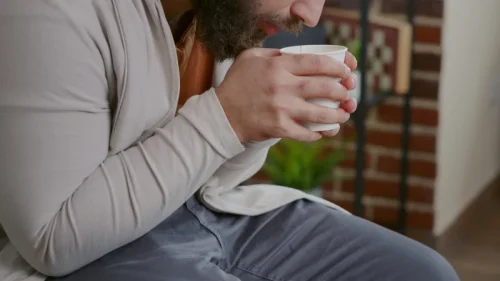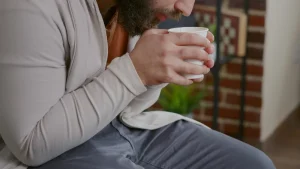
It might be necessary to change friends and habits since returning to old lifestyles might trigger a relapse. It can be days, weeks, months, or years before you notice your loved one has an addiction problem. It can take even longer to get them to check into a drug or alcohol treatment center. Florida is sought after for rehab because of its warm weather, inviting beaches, and an extensive network of rehab facilities catering to a wide range of budgets and preferences. California is a popular destination for rehab due to its mild climate, scenic landscapes, and a large number of high-quality rehab centers that offer a variety of treatment modalities.
What Medspa Treatments Actually Boost Your Mental Health—and Why You Should Try Them

” or if someone you care about is struggling, treatment can help. Reach out to American Addiction Centers (AAC) at for a free and confidential call. Available 24/7, admissions navigators can not only listen to your story but also answer questions about treatment and assist in locating a facility to meet your needs. If you’re not sure which rehab center is best for you, “How to Choose a Rehab Facility” provides a list of several factors to consider.
Relapse Prevention

A key reason people go to drug rehab is because it is needed to heal – to heal their bodies, their minds, their hearts, and all that follows. At Turnbridge – a youth treatment center in Connecticut – we constantly encounter adolescents and young adults who are not ready or willing to recognize the extent of their drug problem. Often, their reasons for going to rehab are directly related to legal troubles, family troubles, or troubles with physical health. Overtime, these young men and women find their own reasons to go (and stay) in their program. Furthermore, many treatment centers and facilities offer alumni programs that allow program graduates to stay involved.
What Is Treatment Success?
Even when a person wants to stop, the cravings are incredibly strong. The withdrawal symptoms can be strong, too, which is a reason why so many people go to rehab to quit successfully. It is important to find a support group of some kind, whether it is based on the 12-Step model or not. Self-Management and Recovery Training (SMART) is one of the most popular alternatives to 12-step groups.
No one likes the idea of having going back to rehab to return to rehab, but it can quite possibly save your life. Please reach out to a treatment provider if you need help finding a rehab after relapse. If you’ve been in a program, immediately connect with your counselor, therapist, support group, or mentor. Recommit to your self-care plan, especially activities that eased stress and other emotional triggers. This lack of commitment, among other factors, is often cited for the “revolving door syndrome,” or a cycle of treatment, relapse, and a return to treatment.

They have such bad memories of their substance use, and are enjoying their recovery journey. Sure, it is a great feeling when you are confident in your recovery, but keep in mind that everyone is eligible for relapse. All it takes is a millisecond, being in the wrong place at the wrong time, or just one bad thought that leads to one bad decision.

Phone, Video, or Live-Chat Support
Do not be so confident in your recovery that you are willing to put yourself in risky situations or seek them out to prove to yourself that you can be sober at a party, for example. Proper self-care will make you feel better about yourself, and will be sending a message to yourself that you care about your wellbeing. Conversely, poor self-care sends messages to yourself that you don’t care about your wellbeing and can trigger a relapse. For example, eating a diet that is unhealthy, low in nutrients, and/or high in sugar may result in poor physiological and neurological health that can lead to low mood and cause alcohol or drug cravings. Weight gain can lead to individuals feeling depressed, and trigger thoughts that their substance use might help them lose the weight they have put on.
Depending on the type of substance used, the quantity of use, the frequency of use, the duration of use, and other factors, withdrawal symptoms will be different on a case by case basis. Some common physiological withdrawal symptoms may include nausea, hot and cold sweats, restlessness, vomiting, diarrhea, insomnia, and muscle aches to name a few. Withdrawal from substances such as alcohol and benzodiazepines (Xanax, Ativan, Klonopin, Etizolam, etc.) can even be deadly and/or cause seizures. These services include psychotherapy, 12-step education and other prevention programs that help people avoid triggers that commonly lead to relapse. Many treatment centers encourage clients to engage in aftercare services. Sometimes individuals who are new to sobriety experience a pink cloud, or have notions that they will never use alcohol or drugs ever again no matter what.
- Support groups for members of the LGBTQ community may be available, as groups may be for members of specific ethnic groups.
- Sometimes leverage is emotional, legal, financial, or the living situation.
- You may have thoughts about losing all that is good in your life, losing all friends, being boring, and feeling lost without the use of the substance.
- It typically takes eight years or longer to achieve long-term remission even with high quality treatment and medical care.
- Since these providers may collect personal data like your IP address we allow you to block them here.
Leaving Rehab After 7 to 14 Days

Relapse can happen for a number of reasons and going back to rehab opens the door to improve the recovery plan and take new steps towards sobriety. Physical or mental exhaustion can lead to fatigue, which can affect everyday tasks. Too much stress can create urges to numb physical or psychological pain with drugs or alcohol. Triggers can arise when people feel sad or attend a social function where alcohol is available.
The Most Common Questions About Recovery:
If you start to think of yourself as a failure, you’re more likely to move into the next stage of relapse. When you’re recovering from alcohol use disorder, a relapse is when you start drinking again. It’s not the same thing as a lapse, which is temporary and short-term — such as when you have one drink at a party, then go back to not drinking. If you’re considering reentering a rehabilitation facility for concerns related to relapse or entering for the first time, and you have any questions or concerns, contact us at Vertava Health today.
Leave a Reply